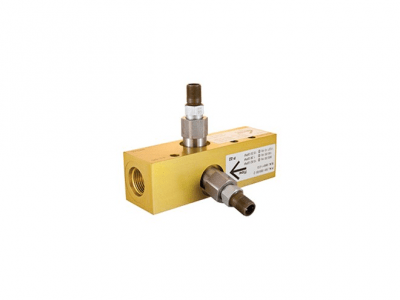
Two functions are performed when powering a hydraulic pump. It is the mechanical action which, initially creates a vacuum and enable the atmospheric pressure to drive and force oil from the hydraulic tank (reservoir) into the inlet port of the pump. Through this mechanical action the oil is then delivered to the outlet port and driven into the main hydraulic line feeding the system. It thus establishes that a hydraulic pump produces flow and NOT Pressure as is commonly thought.
Pressure is created either by the resistance to flow and this is referred to as Dynamic Pressure, or by the potential energy of an object being affected by gravity, this is known as Static Pressure.
“Pascals Law states that any pressure exerted on a confined fluid is transmitted with equal force in every direction.”
Chris Banks of Hydrasales says; “One proviso, this is only true if the fluid remains trapped.”
Trouble Shooting Fundamentals
Banks advises; “Should a troubleshooting situation arise and a diagnosis is necessary, no matter how simple or complex the hydraulic system, always start with the basics.”
This ensures that the obvious is never overlooked. For the 'obvious' to be obvious, the fundamental laws of hydraulics must be kept in mind:
- Hydraulic pumps create flow - not pressure.
- Resistance to flow creates pressure.
- Flow determines actuator speed.
- Pressure determines actuator force.
- Fluid under pressure takes the path of least resistance.
- When a fluid (liquid) moves from an area of high pressure to an area of low pressure (pressure drop) without performing useful work, heat is generated.
Why We Measure Hydraulic System Flow?
Flow is a very important measurement for hydraulic systems and can be compared to what current is for electric circuits. Checking pressures and not measuring flow rates when monitoring hydraulic systems or fault finding on such circuits can easily produce an incorrect diagnosis.
Hydrasales is the authorized distributor for Badger Meters in Africa. Chris Banks proposes a few diagnostic flow metering tools to check on flows going through a hydraulic system.
Hedland Variable Area Flow Meters, measure volumetric flow of liquids and gases. This technology is based on the variable area principle, where flow raises a float in a tube, increasing the area for passage of the fluid through the meter. Chris Banks says, “The Hedland range of flowmeters are useful on test benches and accommodate high levels of flow. In practice, it is common to check and monitor flows when assessing equipment on a test bench.”
Hydrasales carries an popular ranges of Hedland Oil Flowmeters.
IOG or Oval Gear Flow Meters are designed to function in applications that require accurate volume dispensing. Consisting of two toothed precision wheels that are oval shaped. As fluid passes through the meter, the oval wheels rotate proportionately and the number of rotations are equal to the volume measurement.
Turbine Flow Meters measure flow as fluid rotates a turbine inside the meter. Mounted above the turbine is a transducer which generates an electric pulse every time a turbine blade passes under it. This type of hydraulic 1flow meter has a high accuracy level.
Hedland Variable Area Flow Meter Test Kits
For successful testing of hydraulic components for leakage including pumps, motors and relief valves, the Hedland range of variable area flow meters include the option of a test kit which includes an adjustable load and pressure gauge. This allows for portability and onsite testing both safely and accuracy.
There are versions available for reverse flow capability, high temperatures and high-pressure applications.
Flo-Tech Hydraulic Diagnostic Products
Flow-Tech is a leading brand of turbine meters and portable testers used in hydraulic diagnostic testing and analysis. Every Flo-tech tester line has undergone a progression of advancements to enhance its operational features and maintain the original rugged dependability. In addition to the hydraulic testers, the Flo-tech line includes four flow sensor models which can include, flow, temperature, pressure sensors with loading valve.
